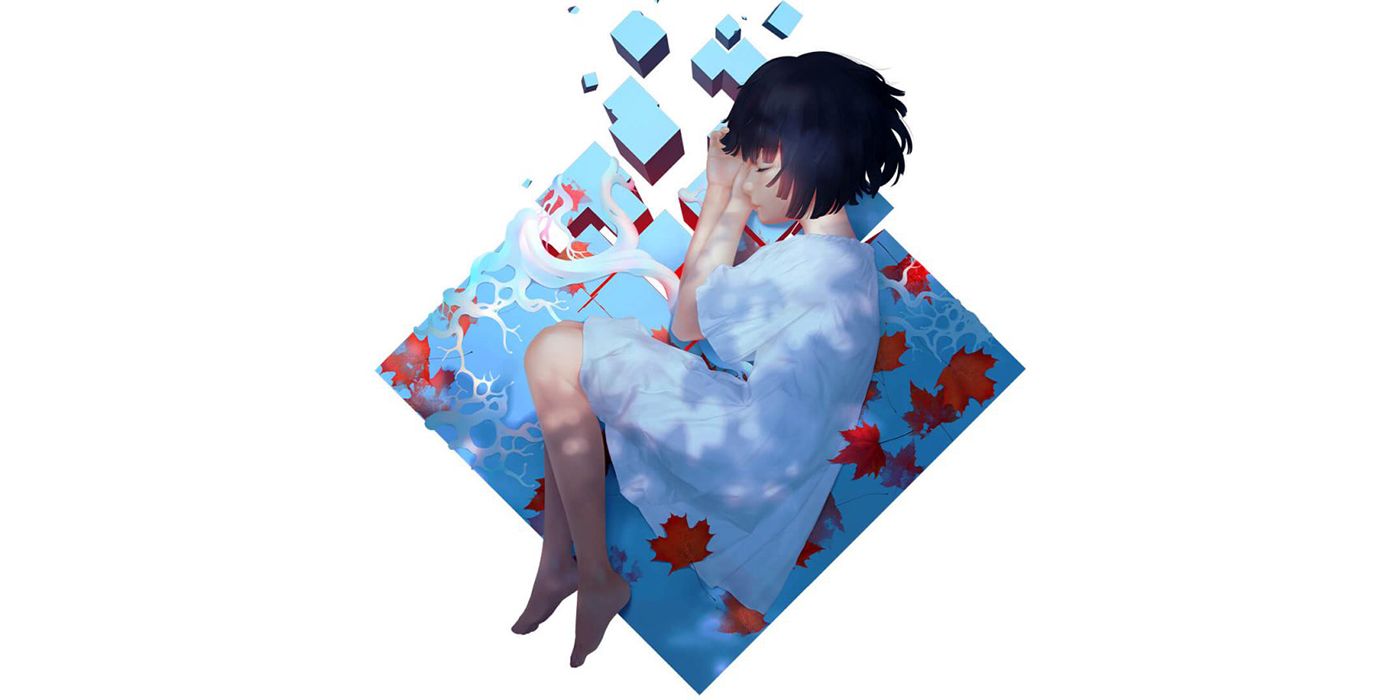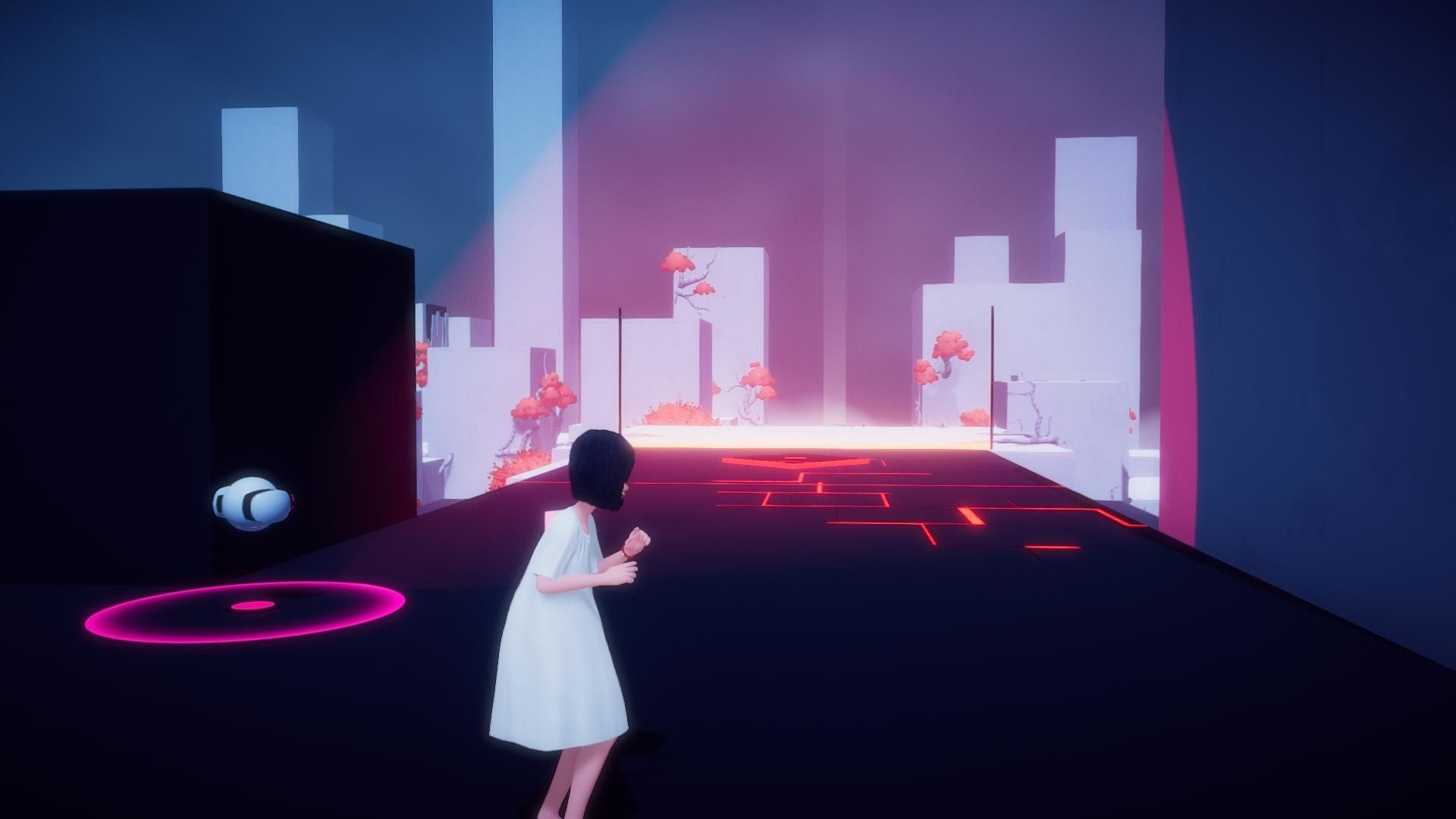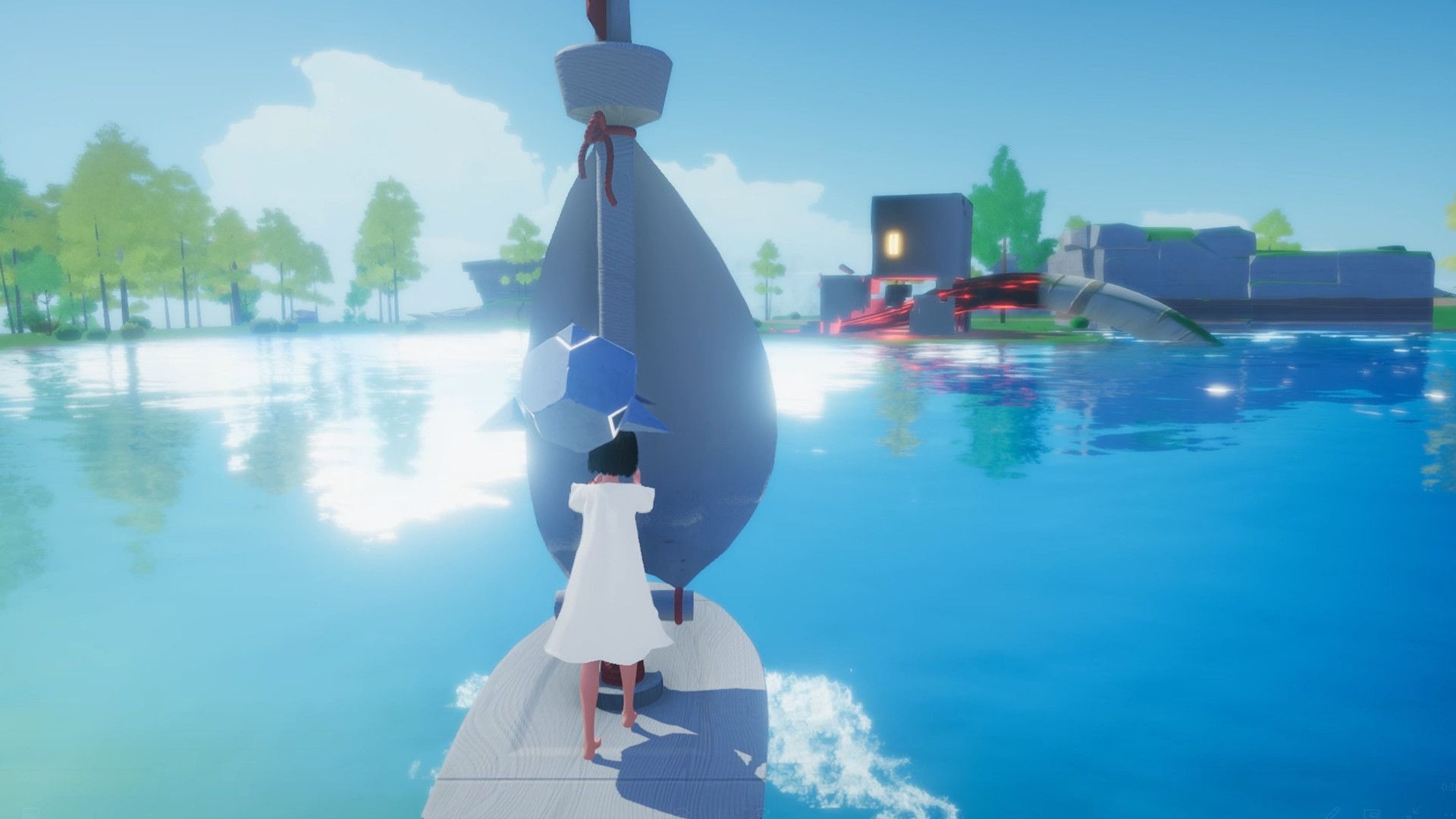Developer Pathea Games broke into the public eye through the success of farming game My Time At Portia. Published by Worms studio Team 17, My Time At Portia provided a slice of pastoral relaxation, and charmed plenty of gamers along the way. Pathea is now back with Ever Forward, although it is a very different project to their most well known release.
Rather than acting as a viable alternative to Stardew Valley, Ever Forward is instead a 3D puzzle game. Taking on the role of a young girl called Maya, the player walks around a small, grassy world that has been overcome by demonic-looking red roots. These roots, which have tapped into and corrupted various buildings, then act as portals into a variety of puzzles in a more clinical, robotic world.
Rather than traversing the calming and beautiful hub world, the majority of the game is then spent on these puzzles. The end goal of each puzzle remains the same, with Maya needing to get a block to an end point in various ways. This could be avoiding being seen by Portal-esque sentry devices, opening and closing routes through the use of other puzzle blocks, or navigating moving walkways and elevators.
When it all comes together, Ever Forward works well and builds an engaging puzzle experience. Levels that combine the more cerebral elements of the game's design force the player to think laterally to come up with solutions, leaving a sense of satisfaction when reaching the end of a level. This is particularly true when Ever Forward adds teleportation devices to the mix, with a good sense of geography needed to understand when to use the teleportation pods to best effect.
Ever Forward does try to teach players about its different mechanics, but does a mixed job when it comes to the end result. Some elements are very intuitive, such as the player having to coax the game's sentry robots into looking in different directions to slip by. However, Ever Forward does sometimes fall into being a little inscrutable, particularly given that its hint mechanic - which requires the player to collect leaves in the hub world - is not entirely explained.
There are some other problems, too, which have a larger impact on the enjoyment of the game. All too often Ever Forward falls into timing-based puzzles that don't match the game's controls or overall tone. Sometimes, success in puzzles falls into fine timing margins, which are particularly difficult to reach given the slow pace of Maya and the awkward controls that stop the player from being able to react as quickly as they would like.
It's this difficulty with pace in puzzles that holds back Ever Forward from really feeling cohesive. In its more frustrating moments, a player will recognise the required outcome of a puzzle but be unable to solve it because of how awkward the controls are, or how severe the time restrictions are, particularly towards the end of the game when gravity switches come into play. When the pace is slower, and Ever Forward's puzzles become more methodical, it's a much more enjoyable affair.
Even in its more vexing moments, Ever Forward does provide a pull to keep going. The game is tied up in an abstract story that revolves around a never-quite-explained cataclysm that has upended society. This ties into a mother and daughter relationship in a touching way, although it's rather predictable when it comes to its individual story beats.
As an overall package, Ever Forward is a solid enough puzzle game with enough eureka moments for puzzle fans to want to get involved. It's unfortunately let down by its more action-based moments and its up-and-down difficulty curve, which stops it from being a must-play. Nonetheless, there's still a fair amount to love for those after a punchy and short puzzle game.
Ever Forward is out now for PC. Screen Rant was provided with a PC download code for the purposes of this review.



